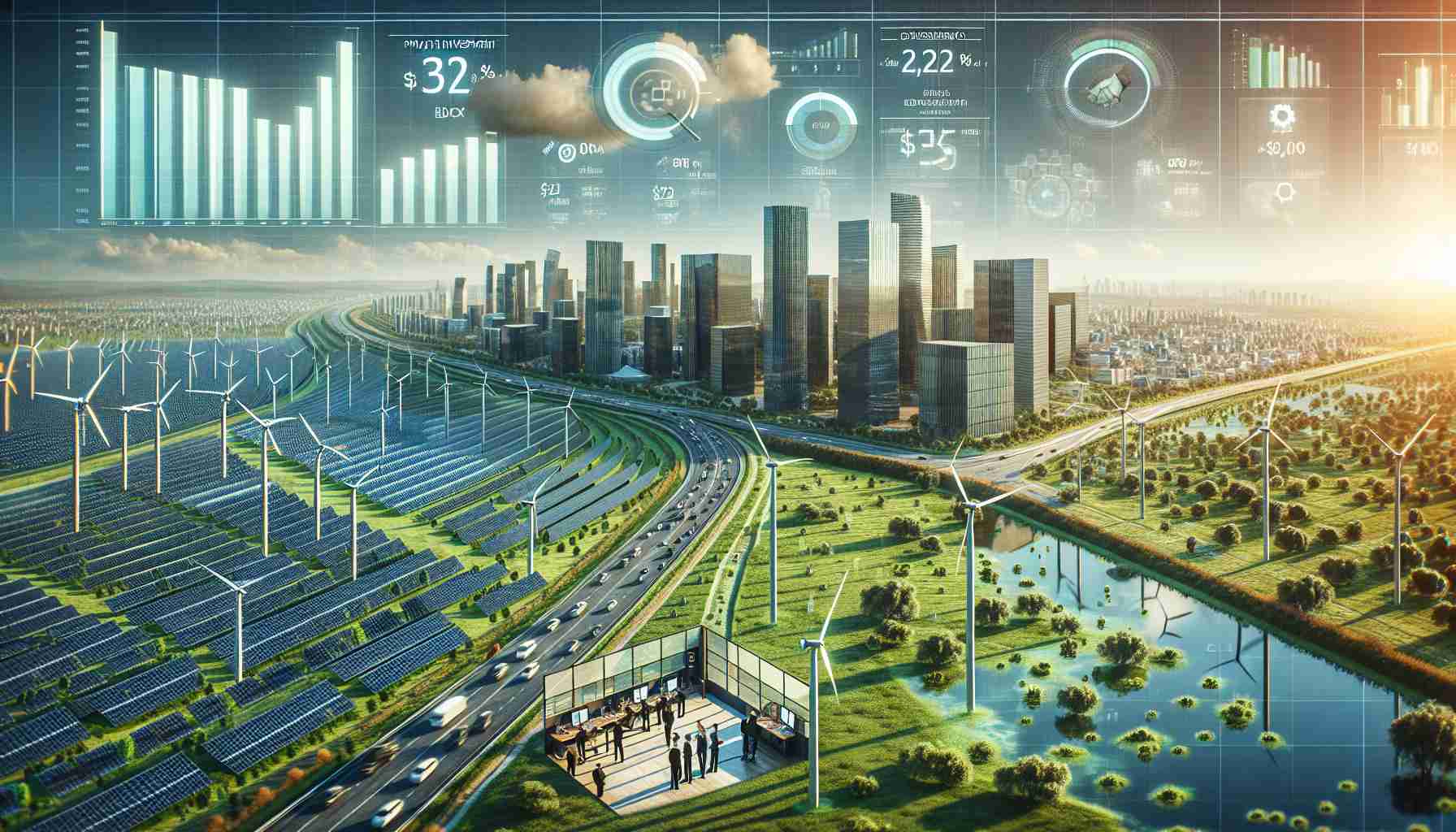Pennsylvania’s Bold Step to Revitalize EV Charging Infrastructure
Pennsylvania is steering towards a more accessible future for electric vehicle (EV) owners with the introduction of the Electric Vehicles Charger Reliability and Accessibility Accelerator (EVC-RAA) program by the Pennsylvania Department of Transportation (PennDOT). This groundbreaking initiative, supported by the federal Bipartisan Infrastructure Law (BIL), marks a significant effort to replace outdated and broken EV chargers across the state.
In its initial funding phase, PennDOT allocated a total of $300,000. Two notable projects have been selected for this initial investment: Electrify America will be upgrading its charging facilities at Willow Grove Mall with the advanced Gen 4 chargers, establishing the area’s only direct current fast charging site south of Interstate 276. Meanwhile, Leg Up Farmers Market in York, Pennsylvania, will improve its service reliability by installing new Level 2 chargers.
The door for future proposals is wide open. Round 1A of the EVC-RAA Funding Opportunity was made available on October 24, 2024. Submissions will be accepted starting November 11, 2024, with the deadline set for January 10, 2025. This program encourages eligible locations, identified by the Federal Highway Administration (FHWA), to apply for funds to ensure their charging stations meet federal standards.
With $4.7 million still available for upcoming projects, PennDOT is focusing its resources on enhancing EV infrastructure to meet FHWA criteria, which includes a minimum of four ports and 97% operational time. For additional details about the program and funding opportunities, interested parties can explore PennDOT’s website.
The Unseen Impact of Pennsylvania’s EV Charging Overhaul
As Pennsylvania paves the way for a modern electric vehicle (EV) future with its Electric Vehicles Charger Reliability and Accessibility Accelerator (EVC-RAA) program, supported by the federal Bipartisan Infrastructure Law (BIL), the broader implications for individuals, communities, and even the planet remain largely unexplored. This article delves into the potential ripple effects of Pennsylvania’s ambitious plan, highlighting both fascinating insights and contentious debates.
Transforming Communities and Lifestyles
The upgrade of EV charging infrastructure is more than a boon for existing electric vehicle owners; it’s a catalyst for widespread change. As accessibility to reliable charging stations increases, more people are likely to consider purchasing EVs, which in turn can lead to a decrease in greenhouse gas emissions, reducing the state’s carbon footprint and promoting a healthier environment. For communities, this translates into less air pollution and potentially lower healthcare costs associated with respiratory illnesses.
Advantages and Disadvantages
One of the significant advantages of this initiative is its potential to boost local economies. As rural and urban areas alike become more amenable to EVs, local businesses can expect more traffic from travelers in need of charging their vehicles. This increase in activity may spur economic development, attract tourists, and create new jobs in the EV sector.
However, the transition isn’t without its controversies. Critics argue that the initial costs involved in setting up and maintaining such infrastructure could strain local resources, particularly in underfunded areas. There’s also the issue of technological fast-tracking; advancing too rapidly could lead to the adoption of systems that may soon become obsolete as technology progresses.
FAQs on the Future of EV Charging
What happens to areas without current EV infrastructure?
Locations lacking EV infrastructure stand at a critical crossroad. While the EVC-RAA program is a step forward, areas not prioritized in funding can continue to lag in EV adoption. An important consideration is how soon these regions can catch up to ensure equitable access for all citizens.
How reliable are the new chargers?
With a 97% operational time requirement set by the Federal Highway Administration (FHWA), reliability should see a significant improvement. However, real-world application and maintenance will ultimately determine the success of these targets.
Intriguing EV Facts
1. Battery Innovation: Did you know that ongoing research into EV batteries, focusing on materials like solid-state technology, could soon make rapid charging quicker and more efficient?
2. Employment Boom: The EV industry is expected to create numerous job opportunities, from sales and maintenance to high-tech roles in battery production and charging station management.
3. Efficiency Concerns: Some EV charging systems lose up to 20% of electricity as heat, making efficiency improvements a continuous goal.
Conclusion
As Pennsylvania strengthens its EV infrastructure, the ripples will be felt not only statewide but potentially across the nation. Electric vehicle adoption holds promise for enhanced environmental benefits, economic opportunities, and technological advancements—but only time will reveal whether the current path adequately addresses both the potential and challenges.
For further exploration of EV infrastructure and its implications, visit the U.S. Department of Transportation and Environmental Protection Agency.
The article has been updated: 2024-11-08 19:12
Here are some suggested related links to include in your post:
1. PennDOT – The official website of the Pennsylvania Department of Transportation, providing updates on transportation initiatives, including electric vehicle programs.
2. U.S. Department of Energy – The federal agency offering resources and information on electric vehicles, energy efficiency, and renewable energy initiatives.
3. Electrek – A news site focused on electric vehicles and sustainable energy, featuring the latest developments in the EV space.
4. ChargePoint – A leading provider of electric vehicle charging solutions, offering network information and insights about public charging infrastructure.
5. Alternative Fueling Station Locator – A directory of alternative fueling stations in the U.S., including electric vehicle charging stations.
6. Natural Resources Defense Council (NRDC) – An environmental organization that advocates for clean energy and sustainable transportation policies.
7. EVgo – A prominent electric vehicle charging network with information on fast charging stations and accessibility.
8. American National Standards Institute (ANSI) – An organization that oversees the development of standards for various industries, including electric vehicle charging standards.
9. Nissan USA – The website for Nissan, a manufacturer of electric vehicles like the Nissan Leaf, providing insights on EV technology and developments.
10. Tesla – The official site of Tesla, a leader in electric vehicle technology, with updates on their products and charging infrastructure.
The article has been updated: 2024-11-09 09:20
What are the key changes introduced by PennDOT in their new electric vehicle charging initiative?
PennDOT’s revolutionary move involves the expansion of electric vehicle (EV) charging infrastructure across the state. Key changes include the installation of high-speed charging stations at strategic locations, ensuring convenient access for EV users. Additionally, PennDOT is collaborating with local governments and private partners to create a comprehensive network that enhances charging availability, addresses range anxiety, and promotes sustainable transportation. This initiative marks a significant step towards reducing carbon emissions and supporting Pennsylvania’s commitment to a greener future.























